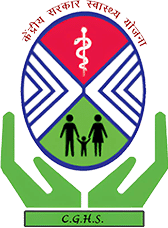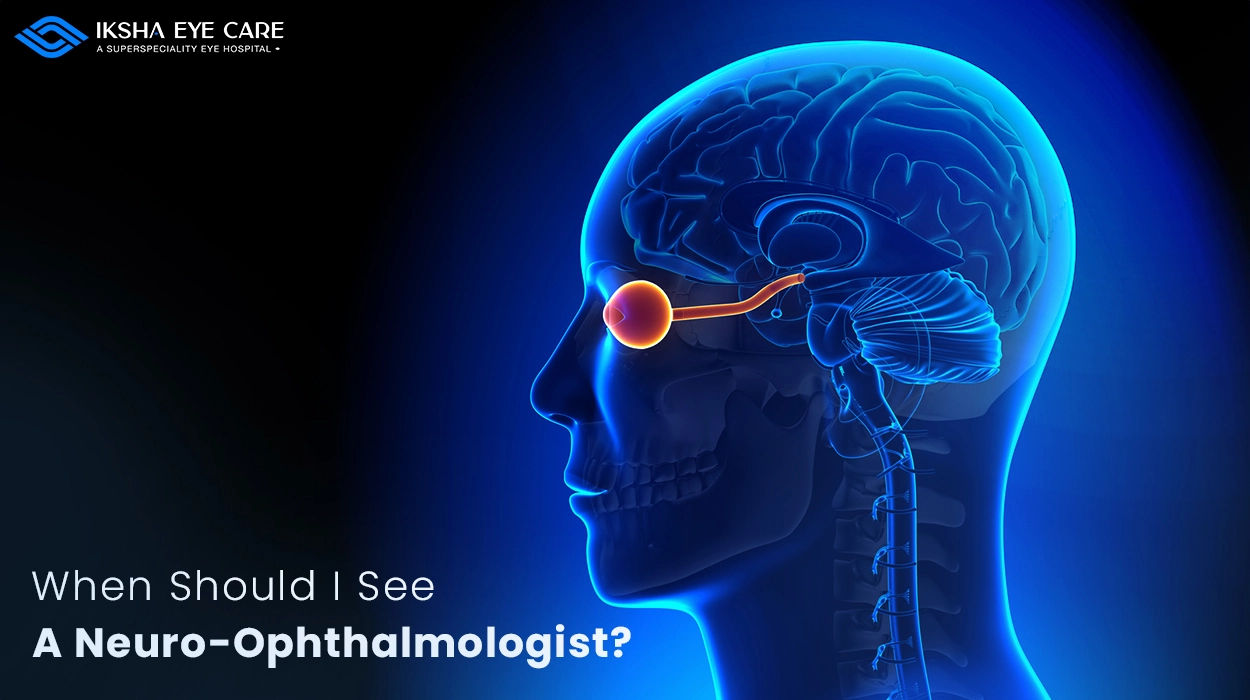Our eyes offer a window to the world, but when vision problems arise, the picture can become blurry. While routine eye exams are crucial, sometimes specialized care is needed. Enter the neuro-ophthalmologist, a medical detective who bridges the gap between the eyes and the brain. But how do you know when seeing a neuro-ophthalmologist is the right move?
Iksha Eye Care, your trusted eye specialist in Santacruz and Andheri, Mumbai, helps you navigate this decision. Here are some red flags that call for a neuro-ophthalmological consultation:
Vision Changes:
Double vision: Seeing one image as two, either horizontally or vertically.
Blurred or hazy vision: Difficulty focusing or perceiving details.
Loss of peripheral vision: Tunnel vision, where objects at the edges of your field disappear.
Sudden vision loss: Complete or partial vision loss in one or both eyes.
Floating spots or flashes: Seeing dark spots, cobwebs, or flashes of light in your vision.
Eye Movement Issues:
Drooping eyelids (ptosis): Difficulty opening or keeping one or both eyelids open.
Eyelid twitching (blepharospasm): Uncontrollable blinking or twitching of the eyelids.
Wandering eyes (strabismus): Misalignment of the eyes, causing them to focus on different points.
Rapid, involuntary eye movements (nystagmus): Jerky or rhythmic movements of the eyes.
Headaches and Pain:
Severe headaches around the eyes or forehead: Persistent or recurring headaches, especially with vision changes.
Facial pain: Pain around the eyes, forehead, or sinuses, often accompanied by vision problems.
Underlying Conditions:
Diabetes: High blood sugar can affect the blood vessels in the eyes, leading to vision problems.
Multiple sclerosis (MS): This neurological disease can affect the optic nerve and cause vision issues.
Autoimmune diseases: Conditions like lupus or rheumatoid arthritis can sometimes impact the eyes and vision.
Brain tumours: Tumors in the brain can put pressure on the optic nerve or visual pathways, affecting vision.
Beyond Vision:
While vision problems are the most common reason to see a neuro-ophthalmologist, these specialists can also diagnose and manage conditions related to:
Brain injuries: Concussions, strokes, or head trauma can impact vision and require specialized care.
Inflammation of the brain or optic nerve: Conditions like meningitis or optic neuritis can cause vision loss and need early intervention.
Congenital disorders: Certain eye and vision problems can occur from birth and require specialized management.
Remember: Don’t hesitate to contact Iksha Eye Care if you experience these signs or symptoms. Our team of experienced ophthalmologists, including our in-house neuro-ophthalmologist, can provide comprehensive testing, diagnosis, and treatment tailored to your needs.
Why Choose Iksha Eye Care?
Cutting-edge technology: We utilize advanced diagnostic equipment for accurate and efficient diagnosis.
Experienced specialists: Our team of dedicated ophthalmologists and neuro-ophthalmologists possesses years of expertise.
Personalized care: We take the time to understand your concerns and provide individualized treatment plans.
Comfortable environment: Our clinics in Santacruz and Andheri offer a warm and welcoming atmosphere.
Don’t let vision problems dim your world. Contact Iksha Eye Care today for a consultation and regain your clear perspective.









